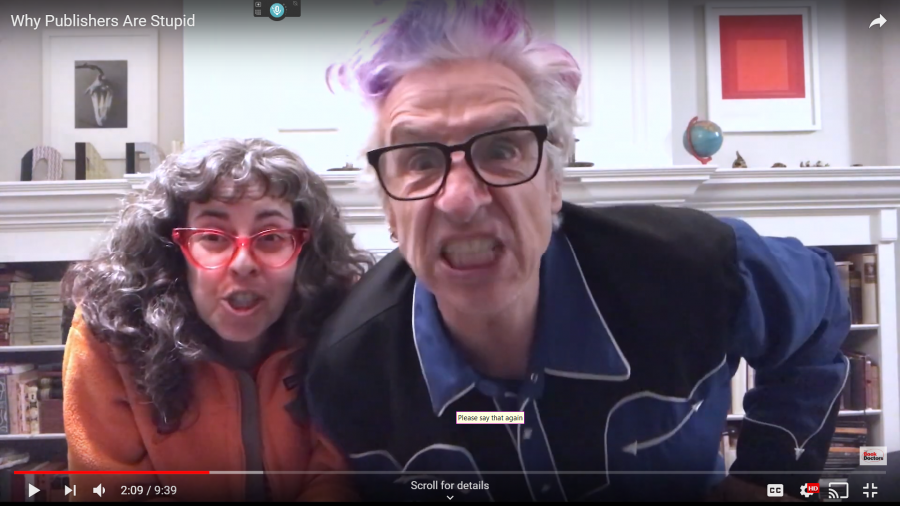The Book Doctors explain in plain & simple language, just why publishers are so stupidly stupid.
Tag: publisher
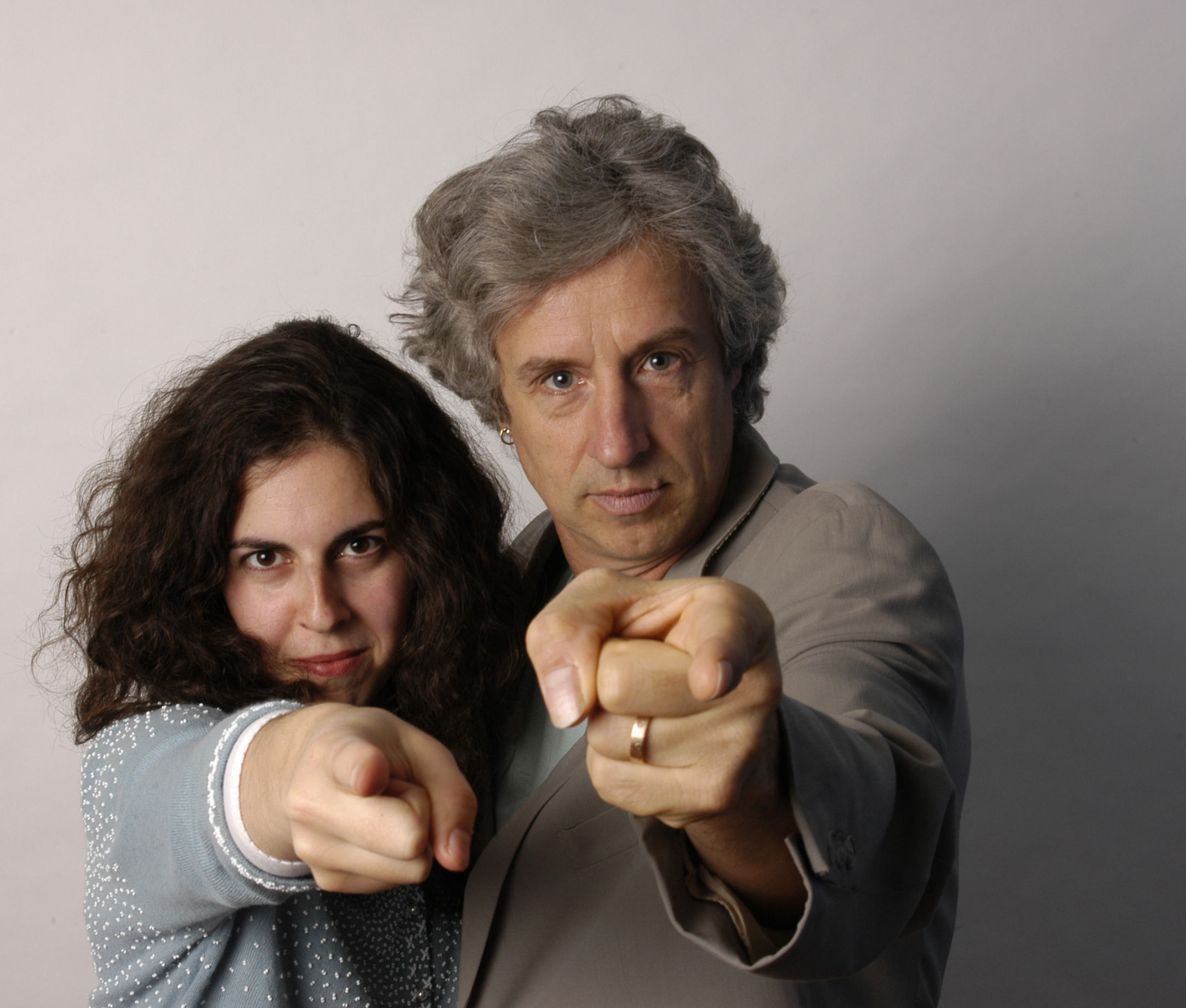
It’s the greatest time in history to be a writer. There are more ways to get published than ever before. While it’s great to have so many options, it’s also confusing. But when you break these many different ways down, they sort themselves out into just three primary paths: 1) The Big 5: HarperCollins, Penguin Random House, Simon & Schuster, Hachette and Macmillan, 2) Independent presses that ranges in size from the hefty W.W. Norton to the many university presses to the numerous one-person shops. 3) Self-publishing. In our over 35 years experience in the publishing business as agents, writers and book doctors, we have walked down all three paths–and we have the corns, calluses and blisters to prove it. To help you avoid such injuries, we have mapped out the pluses and minuses of these three paths in order to help you get successfully published in today’s crazy Wild West world of books.
1) The Big Five: Since publishing has gone from being a gentleman’s business to being owned, run and operated by corporations, you have a much better chance of getting your book published if you are Snooki from Jersey Shore hawking your new diet manifesto than if you’re an unknown (or even established but not famous) writer who’s written a brilliant work of literary fiction. And since the corporatized publishing world continues to shrink at an alarming rate, there are fewer and fewer slots available, even though the competition is every bit as fierce for those ever-dwindling spots. Add to this the fact that, unless you are related to and/or sleeping with Mister Harper or Mister Collins, you will need to find an agent. Most of the best agents only take on new clients who are at the very top of the cream of the crop. Even new agents who are trying to establish themselves only take on a very small percentage of what they are pitched.
Writers who haven’t been published by The Big 5 assume that once they get a deal with one of these big fish, they’ll be able to sit in their living rooms and wait for their publishers to set up their interviews with Ellen and Colbert. They assume they’ll have a multiple city tour set up for them where thousands of adoring readers will buy their books, ask for their autographs, and shower them with the love and adoration they so richly deserve. We can tell them from hard-won experience that this is absolutely, positively, 100% not the case. Our first book together was with one of the Big 5. We won’t mention their name, and when we’re done with the story you will see why. When we went into our meeting with our publicity team, we were full of grand and fantastic ideas about how to promote and market our book, and were wildly enthusiastic about having a giant corporation that specializes in successfully publishing books behind us. Turns out our “marketing team” consisted of one guy who looked like he was 15 years old, and had 10 books coming out that week, and 10 books coming out the next week, and 10 books coming out the week after that. When we told him our grand and fabulous ideas he said in a cracking voice, “Well, good luck with that.” He did what he does with every book that comes out of this giant publishing corporation (unless of course your name is Stephen King, Bill Clinton or Snooki from Jersey Shore). He sent out a bunch of press releases along with a few copies of our book to all the usual suspects. Our book died on the line.
2) Independent Publishers. These publishers almost always specialize in a certain kind of book. They usually appeal to a niche audience. As opposed to the Big 5, who are generalists, and in theory at least, publish books for everyone. Again, these independent publishers are not owned by big celebrity-obsessed bottom line-driven corporations. That’s not to say they can’t be big companies. Workman, who published our book The Essential Guide to Getting Your Book Published, is one of the most successful publishers in the world. They’ve published everything from What to Expect When You’re Expecting to Bad Cats to the awesome Sandra Boynton oeuvre. But many independent publishers tend to be small, and run and/or driven by individuals who are passionate about the subject which they are publishing. A good number of these publishers are very well respected, and their books can be reviewed in the largest and most prestigious publications in the world. There are many stories of small publishers having gigantic successes. Health Communications, Inc., which published Chicken Soup for the Soul. Naval Institute Press, which published Tom Clancy’s first novel. Bellevue Literary Press, a publisher affiliated with New York University’s school of medicine, which published Tinkers, the Pulitzer Prize winning novel. Greywolf, Tin House, and McSweeney’s are all small independent publishers who regularly produce beautiful high-end fiction that wins awards and garners great press.
Chances are, you’re going to be the big spring book from your independent publisher. We speak from experience that it is so much better to be the big spring book from a well-respected independent publisher than it is to be book number 2,478 from Penguin Random. Because they’ve got Stephen King, Bill Clinton and Snooki from Jersey Shore to promote.
And the great news is, you don’t have to have an agent when querying most independent publishers. Almost all indies expect writers to submit directly to them. If you go onto their websites, they almost always give you very explicit instructions on how to submit. Do yourself a favor, give it to them exactly how they want it. Even better, try to research the editor at the press who would be best for your book and send your query directly to him/her.
Yes, there are limitations to many independent presses. Most independent publishers have limited resources. Most of them won’t send you on a tour because they don’t have the money, so you will be called upon to do your own book tour and events. That being said, our publisher Workman, sent us on a 25 city tour, which they paid for in its entirety–hotels, airfare, escorts (don’t get the wrong idea, these are book escorts, not industrial pleasure technician escorts). But there’s a good chance you’ll get to work with at least a decent and maybe even a great editor, who will help you shape your book. They will proofread your book. They will copyedit your book. They will design and execute a cover for you. And often times they’re much more flexible about author input than the Big 5.
The other issue with fewer resources is that if, for some reason, you should happen to catch literary lightning in a bottle and your book blows up, an independent press may not be able to capitalize on your book’s success. They may not have the bookers for Ellen and Colbert on their speed-dial. And often they have to do very small print runs, so there’s a good chance your book will sell out of its printing very quickly and there will be no books available. Whereas if you’re with one of the Big 5, and your book blows up, they’ll do a giant print run, and they’ll be making calls to all the big guns.
3) Self-publishing. William Blake. James Joyce. Virginia Woolf. Rudyard Kipling. Edgar Allan Poe. Ezra Pound. Mark Twain. Gertrude Stein. Walt Whitman. Carl Sandburg. Beatrix Potter. What do these authors have in common? All self-published. What a cool group to belong to. The fact is, self-publishing can be a ball. It can launch you into superstardom and turn you into a millionaire (okay, rarely, but just ask EL James, author of the fastest selling book in the history of the universe, Fifty Shades of Grey).
Self-publishing has recently been dubbed independent publishing, not to be confused with independent presses. This is in part because self-publishing has for decades been the ugly duckling/redheaded stepchild of the book business. Janis Jaquith, an NPR commentator and self-published author of <a href=”http://www.amazon.com/Birdseed-Cookies-A-Fractured-Memoir/dp/0738849111″ target=”_hplink”>Birdseed Cookies: A Fractured Memoir</a>, says, “When I announced to my writer friends that I was planning to self-publish, you’d have thought I’d just announced that I had syphilis or something. Such shame! Such scandal! I’m glad I didn’t listen to the naysayers, because I’ve had a ball.” The bottom line? This is not your daddy’s self-publishing. The onus of the ugly duckling redheaded stepchild is gone.
“Nowadays, because there is no barrier to publishing, we’re seeing people give up faster on the traditional route. These are people who are writing good books and turning to self-publishing. This means the quality of self-published books has gone up,” says Arsen Kashkashian, head buyer at Boulder Books. More writers are, indeed, seizing on the new technologies and low costs of publishing on their own because try as they may, they cannot break through the gate of the castle that holds agents, editors and publishers.
More than ever, we are talking to writers who are not even going after agents or publishers, because they don’t want to spend years being rejected. People are publishing books on their own because they choose to–because they see opportunities in the market and want a bigger share of the pie than publishers offer; because they want full control of their book; for some, because they just want a relic of their work to share with friends and family. And many writers choose self-publishing because they don’t want to have to wait for the sloooooow publishing machine. If you start looking for an agent or publisher right now, it can take years to find one. Maybe you’ll never find one. Then after you get a book deal, it’s typically going to take between 18 months and two years for your book to come out.
Here are some good reasons to self publish:
1) You have direct access to your audience
2) You want a bigger chunk of the retail dollar of your book
3) You have a time-sensitive book and want to publish fast
4) You want full control of your book inside and out, from your hands to your readers’
5) No matter how much you rewrite and how hard you market yourself, you can’t find anyone to agent or publish your book
6) You’ve written a book that falls outside the bounds of typical publishing–either because of its niche audience, regionality, experimentation of language, category, theme, etc.
7) You really want to publish a book, but you just don’t have the personality to market it to an agent/publisher.
8) You’ve written up your family history or the lifetime of a loved one that will be of great interest to Aunt Coco, Cousin Momo and a handful of other blood relations but no one else
The good news about self-publishing is that you get to do everything you want with your book. The bad news is that you have to do everything. Which means that unless you are a professional proofreader, graphic designer, and layout expert for printed books and e-books, you’re going to have to get someone else to help you. And writers can only edit their books themselves so many times before they lose all objectivity. We highly advise, if you’re going to self-publish, get a trained professional to edit your book.
As with any entrepreneurial project, you can spend between $0.00 to $100,000.00. David bartered with a top-drawer cover designer, proofreader, editor, and specialist who formats printed and e-books. It cost him exactly $0.00 to produce his <a href=”http://www.amazon.com/Confessions-Maniac-David-Henry-Sterry/dp/0985114908″ target=”_hplink”>self-published book</a>. So he started making a profit immediately. As someone who is an instant gratification junkie, it was absolutely fabulous how quickly it all came together. And when that box full of his books showed up at the door, he felt a special kind of life-affirming, rapturous ecstasy.
The good news is that anyone can get published. The bad news is that anyone can get published. So whatever you choose, you have to be the engine that drives the train of your book. And the same principles underlying a successfully published book are remarkably similar.
1) Research. Before you give up any rights or money or agree to work with anyone, make sure you research them thoroughly.
2) Network. Reach out to readers and writers, movers and shakers.
3) Write. Yes, it really helps if you write a great book.
4) Persevere. One of David’s most successful books was rejected over 100 times, by everyone from the top dogs of the Big 5, to some of the greatest literary agents in America, to countless University and independent presses. 100 top publishing professionals told him his book had no value. But tweaking and polishing and making it better, he finally landed a deal. That book ended up on the front cover of the <a href=”http://www.amazon.com/Hookers-Call-Girls-Rent-Boys/dp/1593762410″ target=”_hplink”>Sunday New York Times Book Review</a>.
To find out more about how to get your book successfully published today, ask questions about your book and your various options, and perhaps get a chance to pitch your book to The Book Doctors, sign up for their <a href=”http://bit.ly/1mzSGY7″ target=”_hplink”>webinar</a>, which will be on July 16.
Arielle Eckstut and David Henry Sterry are co-founders of The Book Doctors, a company that has helped countless authors get their books published. They are also co-authors of The Essential Guide to Getting Your Book Published: How To Write It, Sell It, and Market It… Successfully (Workman, 2010).
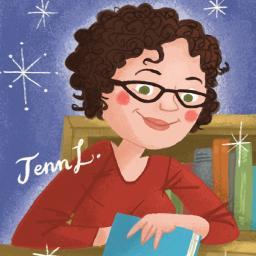
As The Book Doctors have traveled all across this great land, we’ve made a startling discovery. A staggering number of adults want to write books for kids. And approximately 99% of them have absolutely no idea what they’re doing. They don’t know the rules. They don’t know the players. They don’t know anything except that they have a great idea for a kid’s book and they yearn with a burning fever to get it published. Between us, we have we’ve thirteen books, four being nonfiction books for tween girls, and the other a middle grade novel aimed at boys. And Arielle has agented dozens and dozens and dozens of books in her 18 year career as a literary agent. But so much has changed in the world of children’s books, and so many people seem all fired up to write them, that we thought we’d get the inside skinny from one of our favorite children’s book resources, Jennifer Laughran. Jennifer’s had a fascinating career in the publishing industry, because she’s gone from hand-selling books to readers in brick-and-mortar bookstores, to finding writers who have the right stuff, then figuring out how to present and sell their manuscripts to publishers in the increasingly ridiculous book business.
Book Doctors: How did you manage to end up in the book business?
Jennifer: My first job was in a bookstore, when I was twelve.
Book Doctors: Ah, they got you young.
Jennifer: Exactly. It may have been child labor; as I recall I got about five dollars a day plus all the stripped copies of Sweet Valley High I could read.
Book Doctors: Who could resist that?
Jennifer: Certainly not me. I spent the next eighteen years working as a bookseller, and then events coordinator and buyer, for bookstores all over the country. I was also a reader and assistant for literary agents for a couple of years before I became one myself. Then I joined Andrea Brown Literary Agency as an agent three years ago.
Book Doctors: So, everyone wants to know, do you need an agent to get a children’s book published?
Jennifer: Ten years ago or more, the answer would have been no. These days, trade publishing is ever-more competitive and none of the major publishers accept unsolicited (i.e., un-agented) submissions. If you are very lucky, very persistent and very well-connected, you may not need an agent. But most authors don’t fall into that category. That said, if you are looking to be published in a niche market, by a specialty educational publisher, regional or smaller independent publisher, you may not need an agent.
Book Doctors: What are the standard age groups for children’s books?
Jennifer: Board books: 0-3. Picture books: 3-7. Chapter book/Early readers: 5-8. Middle Grade: 8-12. YA: 12+ or 14+ (depending on content)
Book Doctors: Does your book have to be a particular length to sit on a children’s book shelf?
Jennifer: Sure. But that varies depending on the age group; picture books are usually less than a thousand words, YA is usually less than 100,000 words.
Book Doctors: Can you sell a book for kids of all ages? How would you go about doing this?
Jennifer: In general, children’s publishers pick one age group that the book is for and publish it accordingly, and if there is crossover, that is all to the good. Every book I can think of that is supposedly “for kids of all ages” does in fact fall into one of those categories above, or is an adult gift or novelty book in disguise.
Book Doctors: If a writer has ideas for illustrations, should she put them on the page?
Jennifer: No. Illustration notes are distracting and almost always unnecessary, and will expose you as a newb.The only time you should put them is if there is some sort of visual joke or device that is totally necessary to the plot of the book, but impossible to deduce from the text alone.
Book Doctors: Is a good idea to have your uncle’s friend’s 18-year-old son who’s pretty good at art illustrate your book?
Jennifer: No. Let me say again:<em> No!</em>
Book Doctors: Is it ever okay to team up with an illustrator before going to a publisher?
Jennifer: There are some successful folks who are husband-wife or sibling teams or even best-friend teams, where one party is a professional illustrator and the other writes. They work well together and create awesome projects together. That said, these sorts of collaborations aren’t the norm. The much more likely scenario is that a publisher will prefer the text or the art and might be fine with publishing one but not both. Publishers almost always really want to choose their own illustrator.
Book Doctors: If you are an illustrator that has an idea for a kid’s book, but you have no writing chops, how would you go about getting your book published?
Jennifer: I’d learn to write, or get enough published as an illustrator of other people’s works that I developed a reputation with publishers. A big-name illustrator has a much better chance of getting help from publishers in developing a project.
Book Doctors: What are the top 3 mistakes you see in author submissions?
Jennifer: Impatience, Poor Presentation, General Cluelessness. Folks often shoot themselves in the foot by not taking the time to craft an effective pitch, or to target agents specifically, or to query in small batches. They submit material that is deeply flawed, not revised, not finished, or in some cases not even started. They submit material that is totally inappropriate and not what I represent at all because they are blanket-querying every agent in the world simultaneously. I only do kids & YA, fiction yet I daily get queries for erotica and narrative nonfiction.
Ideally, authors would do their homework before they start querying, and their work would be as finished, polished, as close to being ready to sell as possible.
Book Doctors: Does it help to come up with a publicity and marketing plan for your book when querying an agent or publisher?
Jennifer: Sure, though I wouldn’t lead with that; it’d just be a cool bonus if they loved your work enough to publish it already. Most marketing plans sort of grow organically as the book progresses in the editorial and design process and as buzz builds in-house.
A book can take anywhere from a year to several years to be published, and the content of the book, as well as the way it is positioned in the marketplace, are definitely subject to change in that time. That means marketing and publicity pushes that come about just prior to or just after publication will likely look a lot different, and be a lot more effective, than what was being imagined at the query stage. That early in the game, most folks don’t really know what their book is going to be when it grows up.
Book Doctors: Jennifer, on behalf of the Book Doctors and clueless children’s book writers all over America, we thank you.
Jennifer: You are all certainly welcome.
Jennifer Laughran worked in bookstores for years, and is now an agent at Andrea Brown Literary Agency. She is also the founder of the Not Your Mothers Book Club.
Arielle Eckstut and David Henry Sterry, aka The Book Doctors, are the authors of The Essential Guide to Getting Your Book Published. They’re hosting Pitchapaloozas–a kinder gentler American Idol for books–at bookstores and libraries all over America. Check out their website http://www.thebookdoctors.com/to see their tour schedule, and for free helpful hints on how to get successfully published.
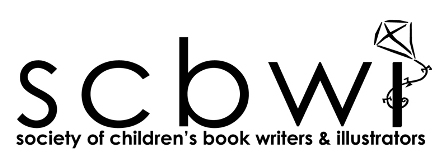
We just got a wonderful review for The Essential Guide to Getting Your Book Published (to buy click on link). Here’s the Essential Guide in SCBWI Bulletin.
BY HEATHER E. SCHWARTZ
TRYING TO WRITE the perfect pitch? Need help handling rejection? Wish getting published weren’t such a harrowing and mysterious endeavor? Like most writers, I’ve been there. Then, I found The Essential Guide to Getting Your Book Published, by Arielle Eckstut and David Henry Sterry. I love everything about this book: The humorous and compassionate tone. The three-part structure that divides four hundred and sixty-three pages into manageable sections. The way the authors answer questions I’ve had for years. (Wondering how to put a personal spin on a letter to an agent you’ve never met? Yes, the answer is in here!) The Essential Guide to Getting Your Book Published is packed with information on every aspect of publishing, from developing marketable ideas, establishing a platform, and perfecting your pitch to negotiating contracts, working with publishers, and self-publishing. It also covers the work authors need to do after their book is out—publicity and marketing, connecting with readers, selling books, and evaluating the entire process, so you’ll be prepared when it comes to writing and selling your next book. It’s easy to feel comfortable following the advice you’ll find in The Essential Guide to Getting Your Book Published. Eckstut is a writer, entrepreneur and agent-at-large for the Levine Greenberg Literary Agency. Sterry is the author of eleven books. And throughout every chapter, they’ve included stories from successful authors who can inspire, warn, and motivate those who are new to the world of publishing.
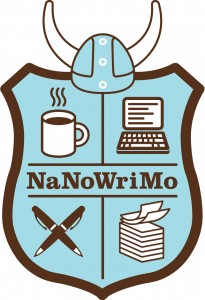
Making Editing Fun: How to Enjoy Revising Your Novel Successfully $60
The first 200 writers who sign up by January 28 will receive invitations via email to participate in this webinar, which will take place on Wednesday, Jan. 29, from 5:00 PM – 6:30 PM Pacific. If you can’t join the webinar live, we’ll happily send you a link to the recording afterward.
About the Webinar
One of the hardest thing for Nano writers is to take their beautiful but unshaped pieces of clay and turn them into glorious works of art that agents, publishers and readers will fall in love with. But what may seem a confusing and slightly terrifying task
can actually be a systematic and easily understood process. And yes, it can even be fun!
Join the Book Doctors, Arielle Eckstut and David Henry Sterry, who have helped talented amateurs become professionally published authors. Between them, they have over 30 years of experience in the publishing business, and have authored, agented and/or midwived hundreds of books, including The Essential Guide to Getting Your Book Published: How to Write It, Sell It, and Market It . . . Successfully.
The Book Doctors will show you how to:
• Start off with a bang
• Check character arcs
• Pace properly
• Build suspense
• Open and close chapters
• Avoid repetition avoid repetition avoid repetition
• Trim fat
• Make the most of your title
• Know when to show and when to tell
• Avoiding clichés
• Keep dialogue real
• Check for words you use over and over and over again
• Read aloud
• Kill your babies
• Find beta readers
• Get objectivity
• Use your pitch to perfect your plot
The Book Doctors will also randomly select a number of first paragraphs from attendees’ manuscripts during the webinar to demonstrate what a professional edit look likes. Send your first paragraph in the body of the email to [email protected] when you sign up.
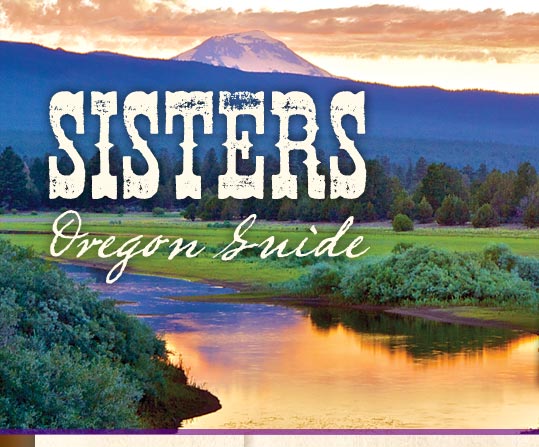
 911 said the sign as we edged into the central Oregon town of Sisters. We weren’t sure if that was the population, or a cry for help. It was Saturday afternoon, and we were booked into Paulina Springs Book Company as part of our Putting Your Passion Into Print Tour. In fact we had put together this event to sell our books Satchel Sez: the World, Wit and Wisdom of Satchel Paige, and Pride & Promiscuity: the Lost Sex Scenes of Jane Austen, because our publishers, Simon & Schuster, and Random House, had told us it would be very difficult to do a successful event in a bookstore revolving around Satchel Paige or Jane Austen, both of whom are dead, and most likely will remain so. But Kate Cerino at Paulina Springs seemed to think differently, and had insisted on doing an event about Satchel Paige, instead of Passion Into Print. So there we were.
911 said the sign as we edged into the central Oregon town of Sisters. We weren’t sure if that was the population, or a cry for help. It was Saturday afternoon, and we were booked into Paulina Springs Book Company as part of our Putting Your Passion Into Print Tour. In fact we had put together this event to sell our books Satchel Sez: the World, Wit and Wisdom of Satchel Paige, and Pride & Promiscuity: the Lost Sex Scenes of Jane Austen, because our publishers, Simon & Schuster, and Random House, had told us it would be very difficult to do a successful event in a bookstore revolving around Satchel Paige or Jane Austen, both of whom are dead, and most likely will remain so. But Kate Cerino at Paulina Springs seemed to think differently, and had insisted on doing an event about Satchel Paige, instead of Passion Into Print. So there we were.
We walked into the store at 4:40 for our 5:00 event, and apart from Kate, none of the 911 Sisterites were there. Our expectations, which had been extremely low to begin with, plummeted as we spied the 30 empty seats sadly facing one lone chair, which was staring off into space self-consciously.
As we strolled around Sisters, we noticed that all the shops were closed, and no one was around. It was like a Twilight Zone episode. We began to wonder if there really were 911 people in Sisters, or if we were going to be abducted by author-starved aliens who would make us write books day and night for the rest of eternity.
Well, imagine our surprise at 5:00 when we returned to find Paulina Springs Bookstore packed with 35 of its 911 occupants. 3% of the population. If this was LA there would’ve been 300,000 people there. Our jaws hit the floor. Those melancholy chairs were now full and happy, brimming with Sisters bottoms, all waiting for us to say something intelligent, insightful and witty about Satchel Paige.
I scanned the crowd, and it suddenly hit me: there were only two people under the age of sixty in the audience. Talk about your target audience. Afterwards, the crowd asked great questions, and many of them shared their own Satchel Paige stories. It was America at its best, oral history flying all around us, right there in Paulina Springs Book Company, Sisters, Oregon, population 911. Turns out almost everyone there had seen Satchel pitch, which is not as strange as it might seem, since he barnstormed North America from Moosejaw to Miami. One woman told a story about when she was a little girl and her father took her to Comiskey Park in 1948 so she could see Satchel pitch against the Cleveland Indians. As she told us, her eyes glowed like gold as she lit up the room.
Towards the end of the event the Oldest-Man-in-the-Room raised his hand. In a voice weathered with age but still going gangbusters, he said, “I was the batboy on Satchel Paige’s team. My uncle was his manager. I used to ride in his car with him. He was fast. He would have made a great race car driver, Ol’ Satch.” He stole the whole show in about twenty seconds.
After the event, the Oldest-Man-In-the-Room approached me. He had several hundred thousand miles on him, but his smile was wide, his mind was tack-sharp, and he had incredible posture. Made me stop slouching just looking at him. He thanked me for writing the book. Then he told me that he had one of Satchel’s old gloves. I said I would love to buy it from him. He said, “No, sir, I want you to have it. Give me your address and I’ll mail it to you.” I insisted on paying for it, but he wouldn’t hear of it. He gave me his pen, and I wrote down my address for him. He carefully folded the paper and put it in his pocket. Then he stuck out his hand and I took it in mine. It was old and thin, but the grip was strong, with a little pump at the end. I hope I’m shaking hands as well as that when I’m 80. After we said our heartfelt farewells, I was distracted by someone asking me to sign a book, and this led to another signature, then another. As I signed the books, I was so happy when the buyers asked me to make the inscriptions out to their grand-sons and grand-daughters. Then it hit me: this is why I wanted to write the book in the first place, so the next generation would know about Satchel and his 6 Rules for Staying Young. As I signed, I felt a tug on my sleeve. It was the Oldest-Main-in-the-Room. I smiled to myself. I figured he probably forgot something. “Sonny, you got my pen.” I cracked up, handed him the pen, and smiled as I watched him walk away slow but steady, overjoyed at 44 to be called Sonny.
We thanked Kate, she thanked us, then we all patted each other on the back for quite some time. We promised her we’d be back when my memoir Chicken comes out in February, and she said she was looking forward to it.
Everyone in the store bought a book. It was the most successful event on our whole 13-stores-in-15-day tour.
As we packed up to leave Sisters, population 911, Arielle turned to David and said, “You never know.”
D & A: Why did you buck conventional wisdom and bring an event revolving around Satchel Sez: The Wit, Wisdom, and World of Satchel Paige into Paulina Springs Bookstore, when most publishers say in-store events about baseball players don’t work when the ballplayer is dead?
K: Someone in the store heard David being interviewed by Scott Simon on National Public Radio, and thought it would make a good event.
D & A: Why did you think an event about a Negro Leagues legend would work in your store when there are so few African-Americans in your town?
K: I don’t really think about it like that. We try to only bring in great events, so when people come to see an event here, they know it’s going to be interesting. Like all independent bookstores that have managed to survive, we have very loyal customers, and they support us.
D & A: So, you don’t make automatic assumptions of which books will draw crowds, and which won’t?
K: No, not really. We just try to bring in high-quality authors we think will put on really good events.
D & A: Your store has such a nice feel in it, it seems very intimate.
K: I think that’s important. A lot of people are intimidated by writers. A woman came to an event here and she said she’d always wanted to go to one of these events, but she felt intimidated. We have a very casual feeling here, and I think that makes a big difference.
D & A: And you had books I’d never seen before.
K: We’re able to hand-select the books we sell. I think almost every book in this store has been read by someone on the staff, or was recommended to us by a customer. One of our customers lives most of the time in Berkeley, and she comes into our store to buy books. I asked her why and she said, “You guys always have seem to have great books I can’t find anywhere else.” And she’s from Berkeley, where there are so many bookstores!
D & A: Your event was the most successful on David and Arielle’s 13 stores-in15-days Northwest Tour. Why do think the event such a success, in a town with 911 people?
K: Well, that’s a little deceiving. There are actually about 10,000 people who live in and around Sisters. But I think Paulina Springs Book Company is in many ways an intellectual center here in Sisters, and, in fact, for the larger Central Oregon community. The store’s owners, Dianne Campbell and Dick Sandvik, have worked very hard over the past nine years to develop strong audiences for our in-store events. People really pay attention to who we bring in. Like a lot of small towns all over America, many well-educated, interesting people live here. People have chosen to move here because it’s such a great place to live. We really work hard to get the word out on our events, and we benefit a lot from word of mouth in the community.
D & A: Do you think that publishers sometimes underestimate small-town bookstores’ ability to sell books and stage successful events?
K: Most definitely! We have a very hard time getting publishers to send their authors here. We’ve been very persistent, especially at making direct contact with writers. Authors like Sandra Dallas, Barry Lopez, Ivan Doig, and Craig Lesley came to Paulina Springs despite reservations of their publicists – and had great receptions and wonderful experiences. We think it’s time publicists and publishers took note that their authors might make a bigger splash here, rather than being part of the background noise in the big city. I was cleaning the files the other day and I found a note from Pete Fromm addressing this very point. “…the entire way to Boise, where the Barnes & noble experience was pretty much a bust. Meeting you guys, the dinner and the reading at your store turned out to be one of the high points of the entire trip. Thanks for pestering the publisher to get me there.”
D & A: That was our experience, too, Kate. Thank you so much for talking to me, and thanks for making us feel so welcome.
K: Thank you.

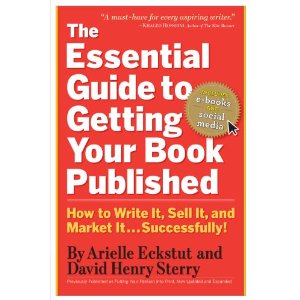 Your pitch is one of the most powerful and underrated arrows in your quiver as you attempt to scale the walls of Publishing Castle. Here are just a few helpful tips.
Your pitch is one of the most powerful and underrated arrows in your quiver as you attempt to scale the walls of Publishing Castle. Here are just a few helpful tips.
1. A great pitch is like a poem. Every word counts.
2. Make us fall in love with your hero. Whether you’re writing a novel or memoir, you have to make us root for your flawed but lovable hero.
3. Make us hate your villain. Show us someone unique and dastardly whom we can’t wait to hiss at.
4. Just because your kids love to hear your story at bedtime doesn’t mean you’re automatically qualified to get a publishing deal. So make sure not to include this information in your pitch.
5. If you have any particular expertise that relates to your novel, tell us. Establishing your credentials will help us trust you.
6. Your pitch is your audition to show us what a brilliant writer you are, it has to be the very best of your writing.
7.Don’t make your pitch a book report. Make it sing and soar and amaze.
8. A pitch is like a movie trailer. You start with an incredibly exciting/funny/sexy/romantic/etc. close-up with intense specificity, then you pull back to show the big picture and tell us the themes and broad strokes that build to a climax.
9. Leave us with a cliffhanger. The ideal reaction to a pitch is, “Oh my God, what happens next?”
10. Show us what’s unique, exciting, valuable, awesome, unexpected, about your project, and why it’s comfortable, familiar and proven.
Here’s a link to interview I did about pitching for NPR.
We’re offering free 20-minute consultations (worth $100) to anyone who buys a NEW copy of The Essential Guide To Getting Your Book Published. Just email [email protected] and we’ll set up your consultation.
Our own Herb Schaffner displaying his big brain and sharing some big love for The Essential Guide.
For Link on Herb Schaffner click here:
—
“A must-have for every aspiring writer.” – Khaled Hosseini, New York Times bestselling author of The Kite Runner
The Essential Guide to Getting Your Book Published
http://www.thebookdoctors.com/
www.davidhenrysterry.com
@sterryhead 4 twttification
http://www.facebook.com/TheBookDoctors 4 facebookization
We were lucky enough to be interviewed by a truly funny and gracious human being who works for NBC. Contradiction in terms? Apparently not. His name is Ben Aaron, and he was very very good to us.
“A must-have for every aspiring writer.” – Khaled Hosseini, New York Times bestselling author of The Kite Runner
The Essential Guide to Getting Your Book Published
http://www.thebookdoctors.com/
www.davidhenrysterry.com
@sterryhead 4 twttification
http://www.facebook.com/TheBookDoctors 4 facebookization

